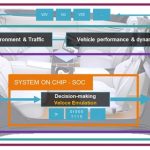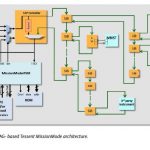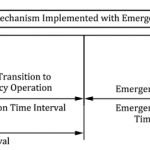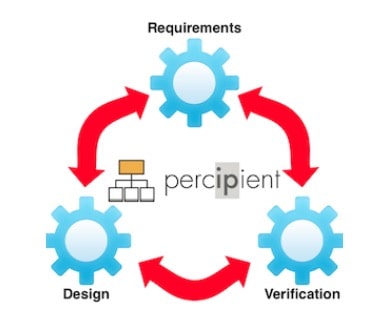Again on the theme of rationalizing NVIDIA’s $40B acquisition of Arm, two more hot areas for growth are mobility and industrial automation markets. NVIDIA is already strong in intelligent mobility and Arm is is virtually everywhere in the modern car. Ditto for robotics in industry. In fact the two domains have significant overlap:… Read More
Tag: iso 26262
ARC Processor Virtual Summit!
The ARC Processor has a rich history. Originally named the Argonaut RISC Processor, it was designed for the Nintendo Game Systems in the 1990s. Argonaut Technologies Limited later became ARC International. My first intimate exposure to ARC was in 2009 when Virage Logic acquired ARC. A year later Virage was acquired by Synopsys… Read More
IP to SoC Flow Critical for ISO 26262
In thinking about automotive electronics safety standards, such as ISO 26262, it is easy to jump to the conclusion that they are in reference to systems such as autonomous driving, which are entering the marketplace. In reality, functional safety in automotive electronics plays a significant role in many well-established automotive… Read More
Autonomous Driving Still Terra Incognita
I already posted on one automotive panel at this year’s Arm TechCon. A second I attended was a more open-ended discussion on where we’re really at in autonomous driving. Most of you probably agree we’ve passed the peak of the hype curve and are now into the long slog of trying to connect hope to reality. There are a lot of challenges, … Read More
Evolving Landscape of Self-Driving Safety Standards
I sat in a couple of panels at Arm TechCon this year, the first on how safety is evolving for platform-based architectures with a mix of safety-aware IP and the second on lessons learned in safety and particularly how the industry and standards are adapting to the larger challenges in self-driving, which obviously extend beyond … Read More
Functional Safety ARC Processor IP will speed automotive system design
In the automotive space you can’t even get out of the starting gate without Functional Safety (FS). All electronic system that go into cars must have ISO 26262 certification. However, this is not something you slap on after the fact. From the ground up the requirements for ISO 26262 must be considered and the proper processes must… Read More
Making pre-Silicon Verification Plausible for Autonomous Vehicles
I love reading about the amazing progress of autonomous vehicles, like when Audi and their A8 model sedan was the first to reach Level 3 autonomy, closely followed by Tesla at Level 2, although Tesla gets way more media attention here in the US. A friend of mine bought his wife a car that offers adaptive cruise control with auto-braking,… Read More
Automotive Market Pushing Test Tool Capabilities
It’s easy to imagine that the main impetus for automotive electronics safety standards like ISO 26262 is the emergence of autonomous driving technology. However, even cars that do not offer this capability rely heavily on electronics for many critical systems. These include engine control, braking, crash sensors, and stability… Read More
What are SOTIF and Fail-Operational and Does This Affect You?
Standards committees, the military and governmental organizations are drawn to acronyms as moths are drawn to a flame, though few of them seem overly concerned with the elegance or memorability of these handles. One such example is SOTIF – Safety of the Intended Function – more formally known as ISO/PAS 21448. This is a follow-on… Read More
Webinar: ISO 26262 Compliance
To me the major idea of ISO 26262 compliance is ensuring that requirements can be traced throughout the entire design and verification process, including the use of IP blocks. The first market application that comes to mind with ISO 26262 is automotive, with its emphasis on safety because human lives are at stake. Since necessity… Read More










